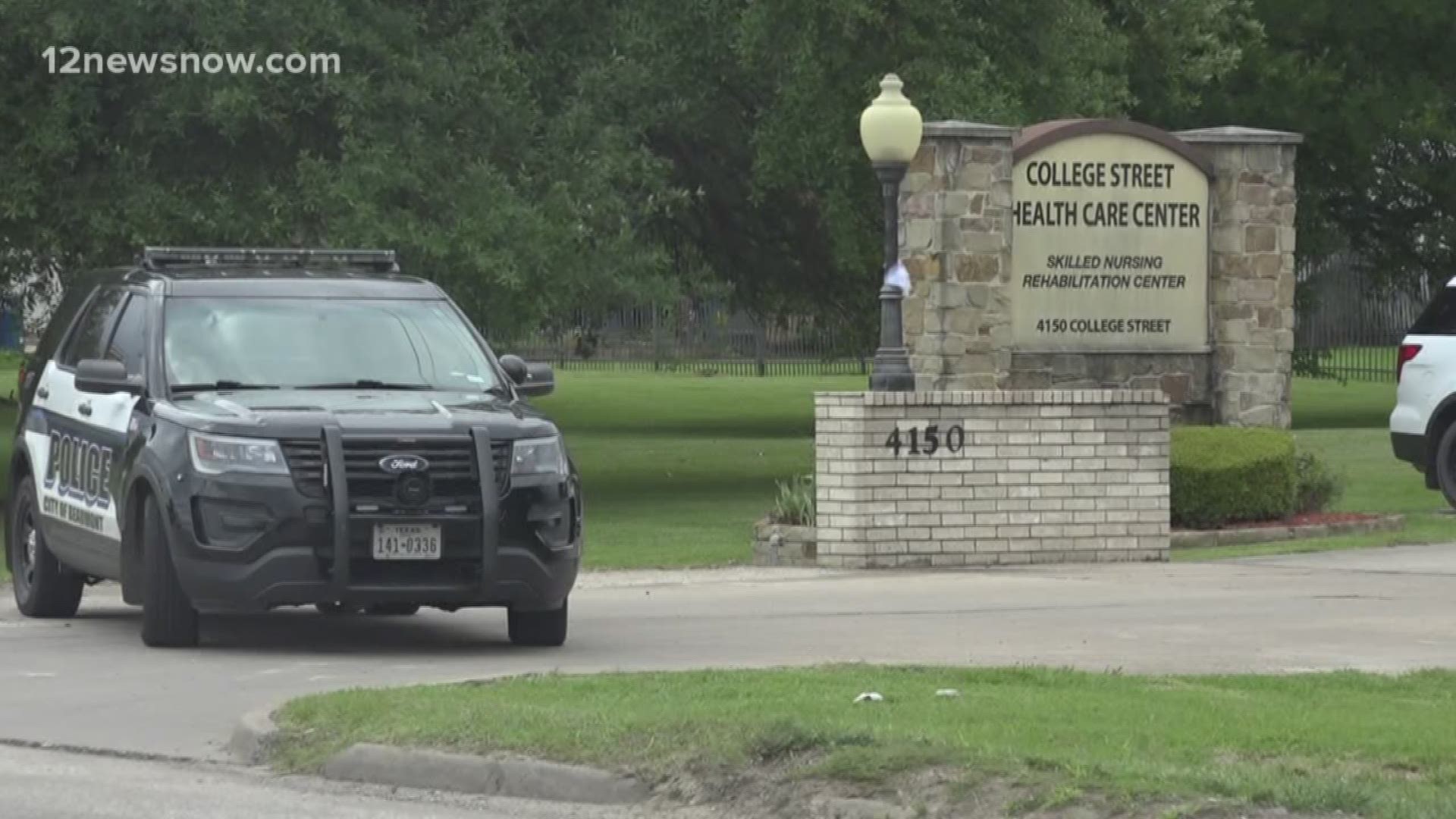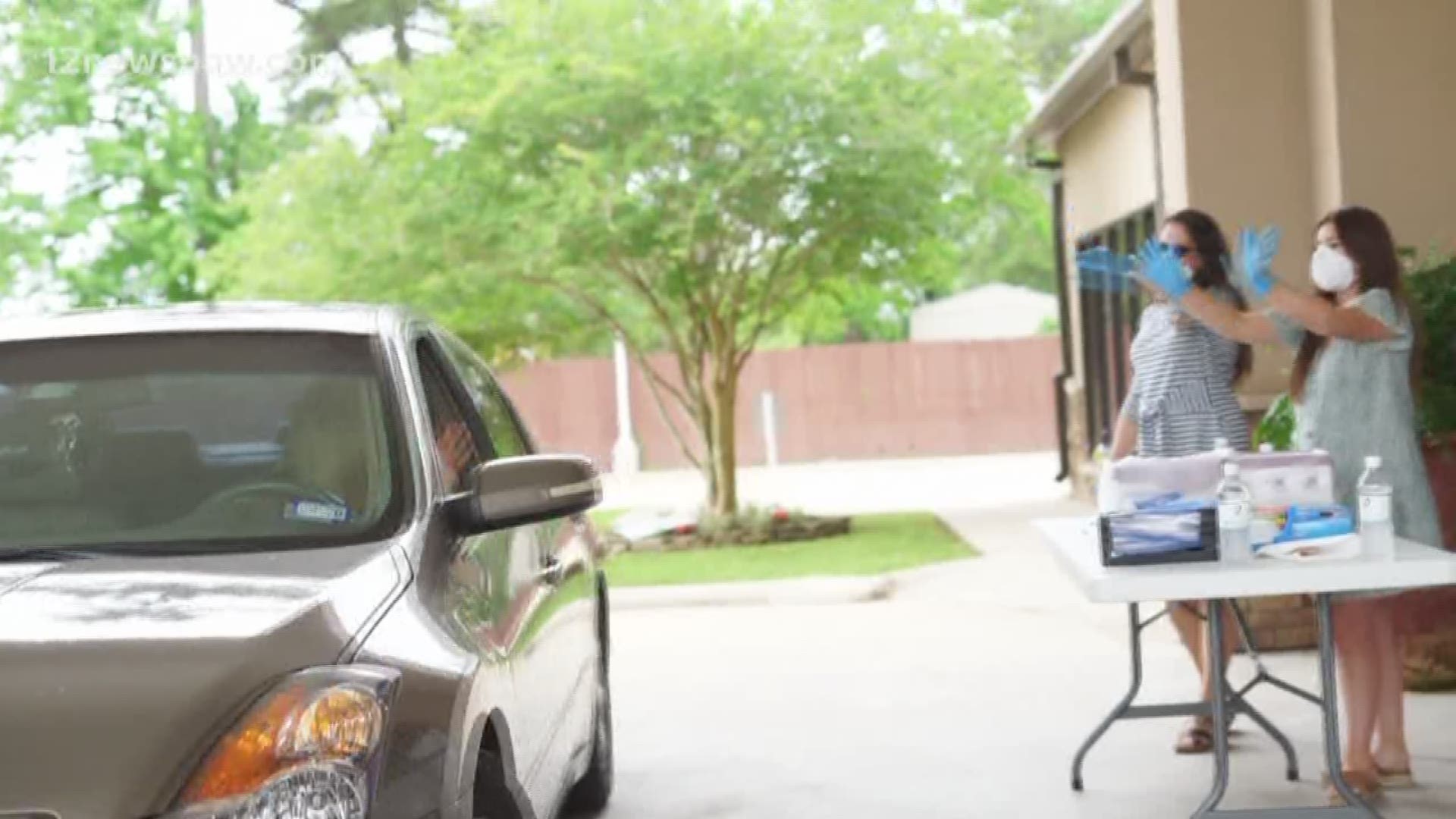BEAUMONT, Texas — Key updates for Saturday, April 11, 2020:
- Britain: Too early to tell if virus peaked
- South Korea’s government says it will strap electronic wristbands on people who defy self-quarantine orders.
- About 1,300 Australian travelers being kept in mandatory quarantine in Sydney ended their two-week confinement.
- Look back at the Friday, April 10 blog at this link
School Impacts | Business Impacts, Closures | Map of SE Texas cases | Coronavirus symptoms & prevention | Coronavirus questions answered
April 11, 4:13 p.m. -- Two residents tested positive for COVID-19 at the College Street Health Care Center in Beaumont. All employees and residents are now under quarantine pending test results. The Southeast Texas Regional Emergency Operations Center and the Beaumont Emergency Operations Center reported that testing of all 78 residents and staff has been completed.
April 11, 11:48 a.m. -- Local agencies are teaming up in response to two residents who tested positive for COVID-19 at a Beaumont-area nursing home. All workers and patients have been required to quarantine until test results are received. Scroll down for more.
The confirmed number of coronavirus cases in the United States was more than 501,000 around 8 a.m. ET on Saturday, according to the count by Johns Hopkins University. There have been over 18,000 deaths in the U.S. and 29,000 recoveries.
The state of New York alone has over 174,000 confirmed cases. That's more than Spain, the country with the second-most cases in the world behind the U.S. On Saturday, the New York metropolitan area accounted for more than half the nation's deaths, with other hot spots in places such as Detroit, Louisiana and Washington, D.C.
Worldwide there were more than 1.7 million confirmed cases with more than 103,500 deaths and 382,000 recoveries.
Two residents test positive for COVID-19 at Beaumont-area nursing home
The Southeast Texas Regional Emergency Operations Center and the Beaumont Emergency Operations Center formed a joint-strike force today in response to the suspected presence of COVID-19 at a Beaumont-area nursing home facility.
County personnel from the six-region area, along with Beaumont Health Department representatives, arrived at the unnamed nursing home facility today and will commence testing of all personnel and residents. At least two residents have already tested positive for COVID-19. Test results will be expedited with results expected within 48-72 hours. All personnel and residents will be required to quarantine until test results have been returned.
Italy urges people to stay at home for Easter
Italy’s special commissioner for the virus emergency urged people to stay at home for Easter and Easter Monday, days when Italians customarily visit friends and relatives or take outings into the countryside.
Domenico Arcuri says, ’’The virus has not been defeated, but we are on the right path. We see the indicators, but not the end of the tunnel. In fact, the end of the tunnel is still far away.”
He says the next phase, a gradual reopening, would be complex and require discipline to prevent another wave of contagion. He says, ‘’This dramatic emergency will only be behind us when an efficient and effective vaccine is discovered.’’
This week also marks the 11th anniversary of the earthquake in L’Aquila that killed nearly 300 people. Arcuri noted in just four days, the virus claimed 3,226 lives.
Britain says too early to tell if virus peaked
British Health Secretary Matt Hancock says it is too soon to determine whether the peak of coronavirus infections in the country has passed.
That's despite data suggesting that the rate of increase in the number of people being hospitalized with the COVID-19 disease is leveling out.
Hancock tells BBC radio that the “good news” is that the number of hospital admissions shows signs of flattening out. However, he says the government requires more evidence before it can start making changes to its lockdown measures.
Britain has been in lockdown for nearly three weeks and the government is expected to extend the restrictions in the coming days.
Japan asks people not to visit bars, restaurants
Japan has broadened a request for people to stay away from bars, clubs and restaurants across the whole country.
The measure previously covered seven urban areas, including Tokyo.
Prime Minister Shinzo Abe says at a meeting of the national coronavirus task force that “many cases of infections have been confirmed at places where people are going out at night, and that spread is nationwide.”
Japan's state of emergency, issued April 7, carries no penalties but asks people to stay home as much as possible.
1,300 Australians end two weeks in quarantine
About 1,300 Australian travelers being kept in mandatory quarantine in Sydney ended their two-week confinement in time for the Easter Sunday holiday. They had arrived at Sydney International Airport after a government-ordered clampdown on March 29 and were finishing their 14-day quarantine, New South Wales police said.
They will undergo a final health check before they are allowed to leave for their homes around the country. Police are overseeing the departures, assisted by health authorities, the Australian defense force and hotel staff.
Buses will run to Sydney’s airport throughout the day, but some won’t be able to return to their home states on Saturday due to flight schedules.
South Korea government putting electronic wristbands self-quarantine defiers
In a controversial step, South Korea’s government says it will strap electronic wristbands on people who defy self-quarantine orders as it tightens monitoring to slow the spread of the new coronavirus.
Senior Health Ministry official Yoon Tae-ho on Saturday acknowledged the privacy and civil liberty concerns surrounding the bands, which will be enforced through police and local administrative officials after two weeks of preparation and manufacturing.
But he said authorities need more effective monitoring tools because the number of people placed under self-quarantine has ballooned after the country began enforcing 14-day quarantines on all passengers arriving from abroad on April 1 amid worsening outbreaks in Europe and the United States.


